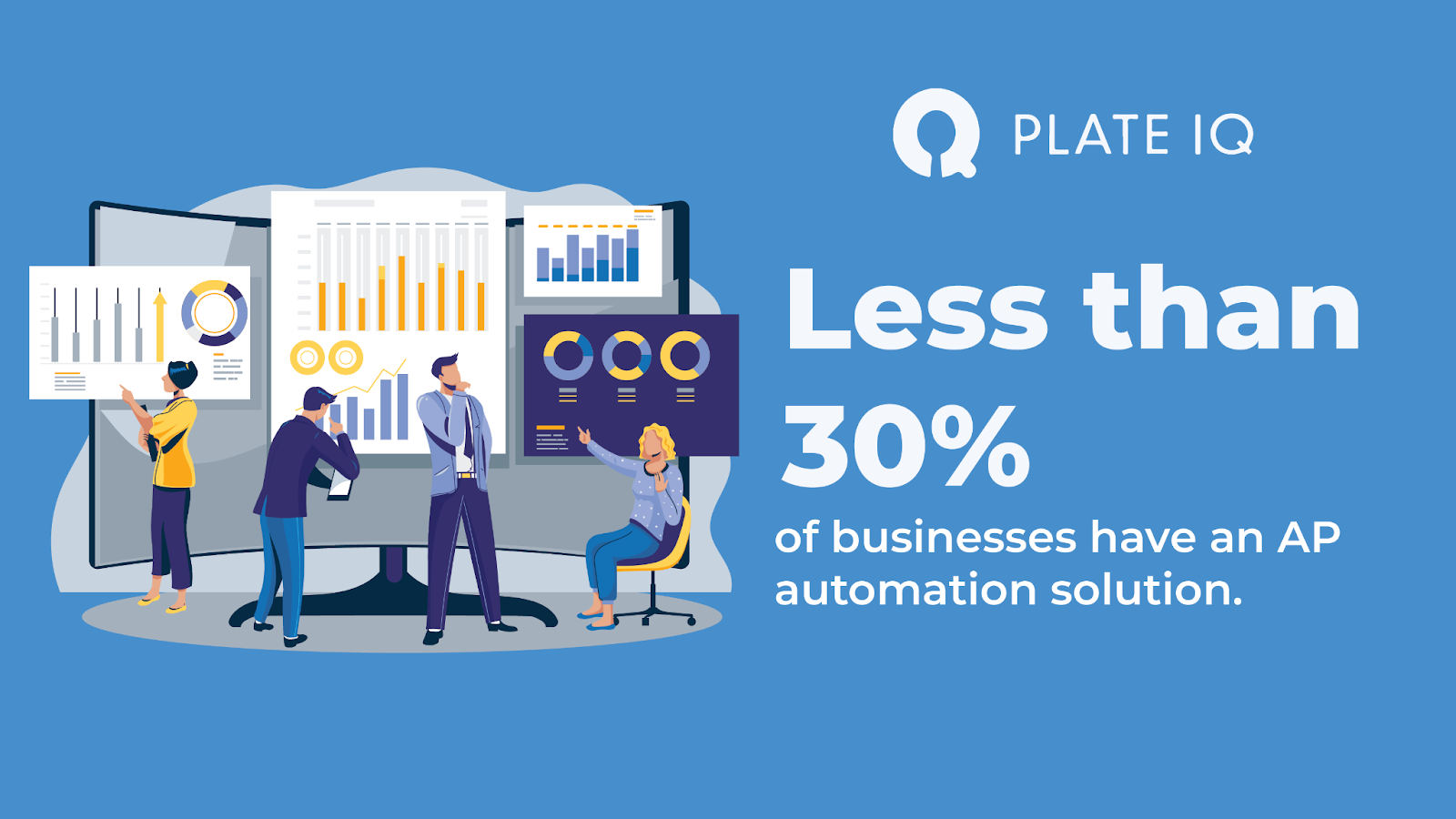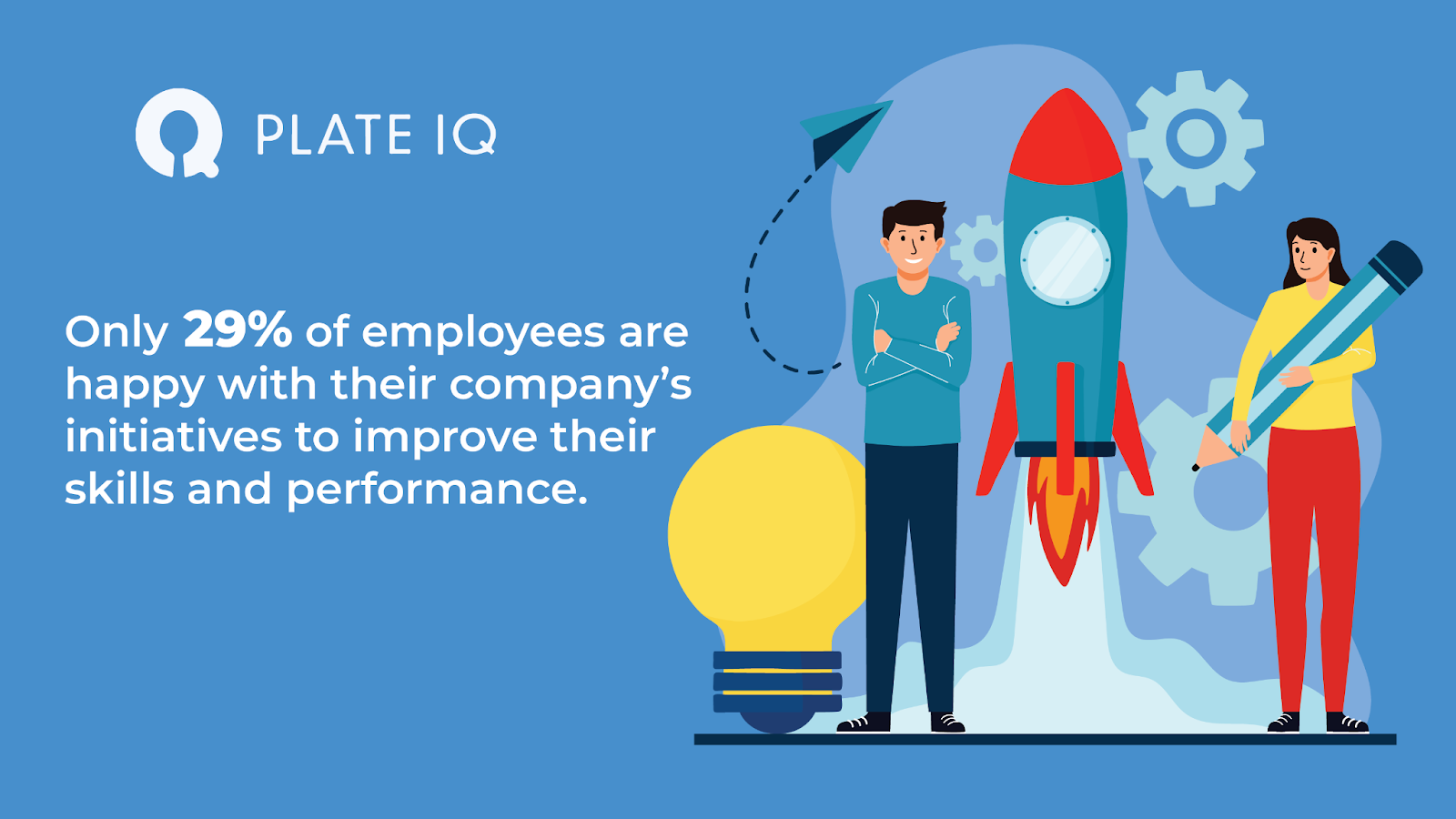
How To Scale When Business Is Booming But The Workforce Is Slim
by Jillian Straw
A period of rapid growth can be exciting for your new business. Revenue is rising, profits are skyrocketing, and you’re making a name for yourself among your competitors.
However, scaling a business with a slim workforce isn’t simple. You’ll soon have another problem: struggling to cope with new customer acquisition.
Consider the hospitality industry during the pandemic. There was a massive labor shortage due to uncertainty, shifting priorities, and health crises. And as the world has begun to reopen, the industry has struggled to re-hire or retain its current workforce.
Over 50% of former hotel, restaurant and bar employees say that no pay raise or incentive would make them return to their old hospitality jobs.
Those workers have moved on because they want:
- different work settings (52%),
- better pay (45%),
- better benefits (29%), and/or
- more flexibility in scheduling (19%).
As an employer, there are ways to capitalize on these demands and take your business to the next level.
But if insufficient staffing stunts your company’s growth, you’re going to be facing something worse than employee outs and low profits—unhappy customers. According to Microsoft, 58% of consumers will end a relationship with a company due to poor customer experience.
So how can you scale when business is booming, but you only have a few employees?
Keep reading to learn:
- 3 Ways To Scale Your Business Successfully With Few Employees
- What To Avoid When Expanding With Limited Staffing
- Final Thoughts on Scaling a Business With a Slim Workforce
3 Ways To Scale Your Business Successfully With Few Employees
To scale your business, you should prioritize the maintenance of your standard performance level. When faced with higher production rates and increased market demands, don’t cut corners on customer service.
Instead, scale your business with a few turnover-proof strategies:
1. Automate Your Manual Processes
Automation makes it easier and more affordable to scale your business by digitizing manual tasks. Manual data entry, payment preparation and execution, invoicing, and payment reconciliation can lead to serious bottlenecks. Automating your accounts payable workflow can help you get more productivity with fewer team members.
Automating menial tasks also positively impacts employee morale, increasing mental health and productivity. Menial tasks invite boredom, and bored workers are twice as likely to become disengaged and leave.
Instead of having three employees enter invoice data manually, you can have one of your staff members upload invoices in bulk—scanning paper, routing PDFs or emails, you name it. Once everything is uploaded, Ottimate takes care of the rest, allowing you to facilitate payments, reconciliation and approvals from one secure, mobile platform.
Ephesoft reports that less than 30% of businesses have an AP automation solution, which means most companies spend a lot of time and resources manually processing tasks that could be more efficiently managed through automation.

Consider the fact that a single invoice, when processed manually, costs you 85 minutes and $21.25 on average. By contrast, automated invoice processing uses 15 minutes and $3.75 per invoice. Imagine saving 70 minutes and $17.50—per invoice—with a robust business automation software like Ottimate.
Not only does AP automation reduce manual work, but it
- makes payment tracking easier,
- offers better customer service, and
- enables faster payments.
While you’re automating your business processes, you can repurpose the focus of loyal employees who’ve helped your business grow in profitability.
For example, a staff member who used to spend all their time manually cutting checks, managing and approving invoices and spend? Help them become a Pricing Analyst. Since their manual duties will be automated, train them on vendor negotiations and strategic ordering for the future.
Scaling a business means laying the groundwork for your company’s growth without being hampered. And with a slender workforce, automation can help unlock the bandwidth you need.
2. Invest in Your Current Employees
According to Deloitte, only 29% of employees are happy with their company’s initiatives to improve their skills and performance. Only 41% feel confident they have the skills needed to thrive professionally for the next five or more years.

That statistic makes it clear that more employees are looking for career development opportunities from their employers — not just short-term investments.
When you have a small workforce, choosing not to invest in your current employees’ futures can hurt your efforts to retain great talent. In contrast, developing new skills among your current staff will create a team of loyal and happy workers.
As a result, you’ll get an engaged workforce who’ll passionately share your vision and dig deep to help your business continue thriving.
Wise entrepreneurs invest in their employees’ well-being, so they experience very low employee turnover. Work Institute shares that the most common reason for employee turnover is career-related dissatisfaction.
When expanding your business, create a company culture that invests in employees’ well-being and career development.
For example, you may have heard a thing or two about employee perks at Google. Their unconventional benefits include:
- Extended paid parental leave.
- Bonus payments for new parents.
- College tuition reimbursement.
- Free food at work.
- Unlimited sick days.
- Paid leave for volunteering.
Companies like Google invest heavily in their staff, and for good reason—in a highly competitive industry, the organization is able to maintain its reputability by retaining top talent. Employees with a more fulfilling work-life balance are more loyal, hard-working, and less susceptible to poaching. Your company can also focus on your employees’ career and skills development by automating manual processes, giving them back hours in their day to devote to more challenging, fulfilling projects at work.
In addition, invest in your employees and empower them to drive your vision by:
- Offering competitive pay to convince your best employees to stay.
- Giving them opportunities for job training and growth.
- Offering competitive health and benefits package to keep your staff happy.
- Emphasizing work-life balance to avoid burnout.
- Embracing team-building activities to foster workplace friendships.
- Recognizing good performance and milestones to motivate your team to work harder.
- Listening to employee feedback to gauge their levels of engagement.
3. Hire Cloud-Based Contract Employees
Did you know that 50% of people refused to return to jobs that didn’t offer remote work, post-pandemic?
Hiring remote employees can be a superb way to scale your business smoothly with limited staff. Whether you need to fill an open position because an employee is on leave, or hire more staff due to increased seasonal demand, taking the remote-hiring route has many benefits:
- You can reduce overhead costs, since compensating employees for their working space is unnecessary when they’re working remotely.
- You’ll have a global pool of talented individuals to choose from. For example, you can hire an excellent bookkeeper or accountant from a different country to manage your invoices, payments, and bookkeeping remotely.
- You’ll have an increased chance of employee retention, because not having to commute is a huge selling point for many workers.
With that in mind, here are some of the most effective ways to find new remote candidates:
- Contact the remote worker through their website. Many top-tier remote workers have a website highlighting their experience and past projects. You can see if a remote employee has experience with companies like yours or in your industry, then contact them if they’re the right fit.
- Leverage your personal and professional networks to find the right remote workers. Since the recommended workers will come from people you trust, it’ll be easier to verify projects, work history, and other elements on their resumes.
- Use job boards to create a post, and let interested candidates read it and follow the steps you outline to apply.
You can decide to hire local remote workers, or widen your talent pool to the rest of the world.
Remote hiring within your company’s HQ country is less complicated, since you don’t have to deal with international employment laws and regulations. However, it reduces your talent pool significantly.
Here are some steps to follow when hiring a cloud-based employee:
- Determine the role(s) you want your remote worker to play.
- Screen and review applicants’ resumes to understand their work history and skill set.
- Conduct a remote video interview to learn more about the candidate you choose.
- Send an offer to finalize the hiring process.
- Onboard your ideal remote employee. The onboarding process can help you orient your new teammate and support the productivity of your entire organization.
What To Avoid When Expanding With Limited Staffing
Scaling up is exciting for business owners. It’s easy to get caught up in the possibilities when rapid growth happens, and all the more critical that you manage your growth with a steady hand and the right strategies.
Ultimately, you don’t want to take on so much that you struggle to keep up with demand.
Avoid these two mistakes when scaling your business:
1. Expanding Too Quickly
Expansion is a fundamental goal for every company, especially growing businesses that want to achieve massive scalability with less labor.
Most small business owners believe that once a startup achieves the break-even point, rapid growth and profits will follow. But small businesses also tend to underestimate the intense pressure that comes with growth.
Too much growth over a short period can be risky. If companies scale without adequate resources and the tools to handle it, they won’t be able to sustain themselves in the long run.
When you expand your business too quickly:
- You may face a cash flow crunch as you deal with increased demand for your products or services.
- You’ll be forced to improvise in order to manage increased demand for new products or services.
- Your service quality might drop, and you’ll start receiving negative feedback from customers.
Here are some tips for scaling your business successfully, sustainably, and in a financially viable way—without rushing it:
- Create a business plan that includes hiring new employees and opening new offices to handle increased customer demands.
- Analyze your finances to make budgeting easier. When you know your numbers, it’s easier to grow your business without incurring high costs.
- Use a SaaS automation software like Ottimate to create repeatable processes at a lower cost threshold, and majorly increase your team’s productivity.
2. Overworking Your Current Employees
Are you noticing a decline in staff morale and health? You might be overworking your employees.
“Overworking” can mean over-scheduling, piling on duties, or simply demanding a higher through-put. If your employees feel they’re working too much or too hard for a long period, they may start looking elsewhere for work. Moreover, if your employees are working so much beyond their capacity that they are becoming overwhelmed or distressed, that can distort your customers’ perception of your business.
Indeed shares that 52% of employees experienced burnout in 2021. That is over half of all workers, across all industries. In order to provide your staff with a positive and healthy work environment, empower them to balance their lives both inside and outside the office.
If you notice these signs in your employees, you might be overworking them:
- a lack of focus,
- a reduction in the quality of work and output,
- they rely on stimulants to stay engaged, or
- their interpersonal relationships are failing.
Here are some tips to help you create a more balanced environment that will sustain your employees’ efforts, not spread them thin:
- Enforce a healthy work-life balance to support your employees’ mental health.
- Use automation tools to streamline internal processes and reduce manual work.
- Give your employees a single task each and allow them to focus on it, alone.
Productivity doesn’t mean having an employee at their desk 100% of the time. It means making it easier for them to get more done in a short space of time, with plenty of opportunities to take breaks.
Final Thoughts on Expanding a Business With a Slim Workforce
Scaling a business with fewer employees than you’re used to is challenging. You need a solid business strategy, loyal staff, and the right tools to persevere through a labor shortage—even if expansion is not an immediate goal.
If scaling up is on your horizon, however, one surefire way to welcome sustainable growth is to implement a workforce automation software, to cut down on manual work and ensure your accounts payable is manageable from anywhere. Your AP automation processes are critical, no matter the size of your business.
If you’re looking for reliable AP automation software, take Ottimate for a test drive. You’ll be able to move your team away from tedious paperwork, toward efficient payment solutions and into the world of searchable, digital document storage that will make future accounts payable success stories possible.
Stay up to date on the latest news in AP automation and finance
Related

